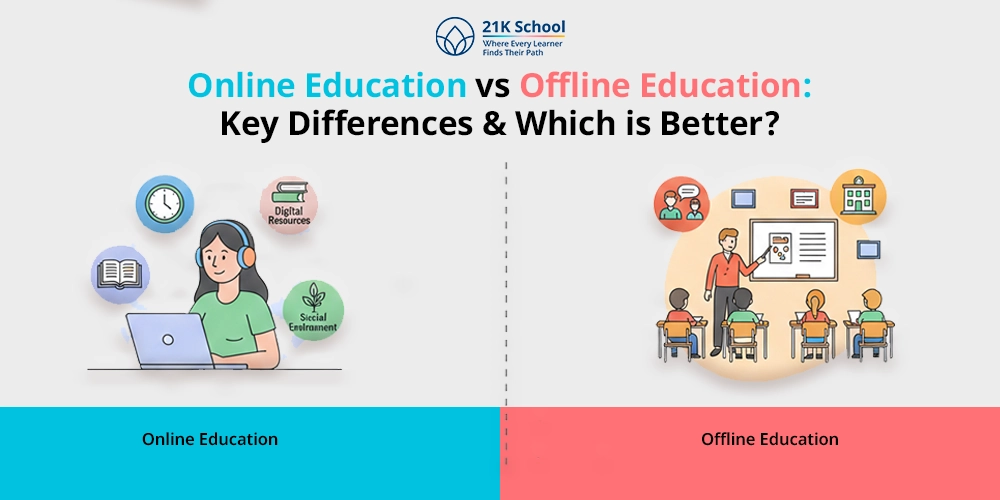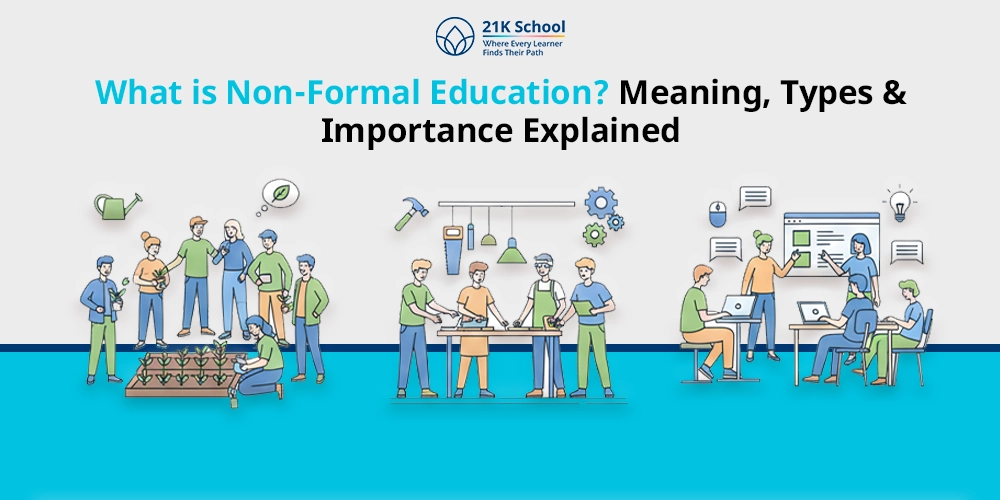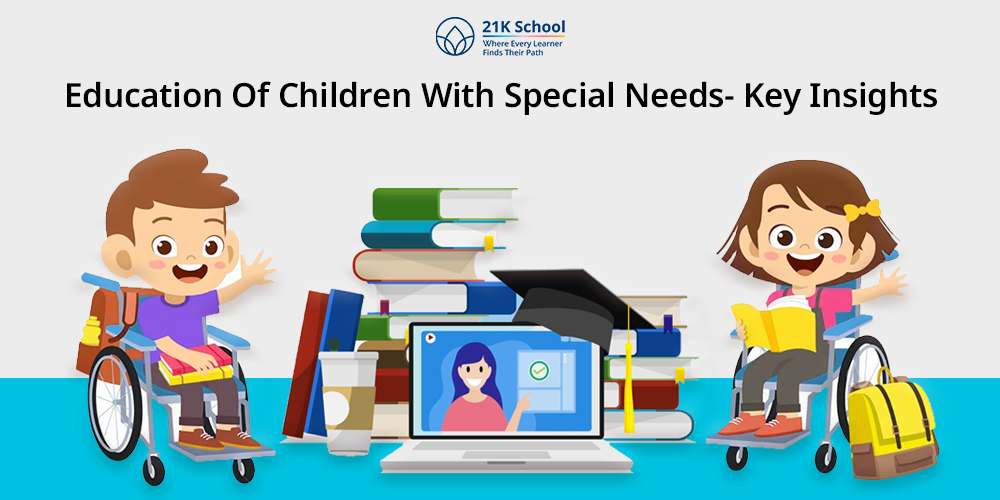
All children are entitled to the right to education. It means every child including children with special needs has the right to education.
Inclusive and equal education makes them empowered and included for children with special needs.
Education of children with special needs helps them in social and emotional development. Regardless of their physical, emotional, intellectual and sensory disabilities, inclusive education supports them. Know about special education in detail.
With academic growth, they also get trained in emotional and social development. It makes them feel independent and self-worthy.
Despite inclusive education for children with special needs, they face challenges. In this blog, you will get a complete brief and expanded view about education of children with special needs.
Table of Contents
- What is the Education of Children with Special Needs?
- Key Aspects of Special Education or Education of Children with Special Needs
- Legal Framework and Policies for Education of Children with Special Needs
- Importance of Education for Children with Special Needs
- Challenges in Education of Children with Special Needs
- Conclusion
What is the Education of Children with Special Needs?
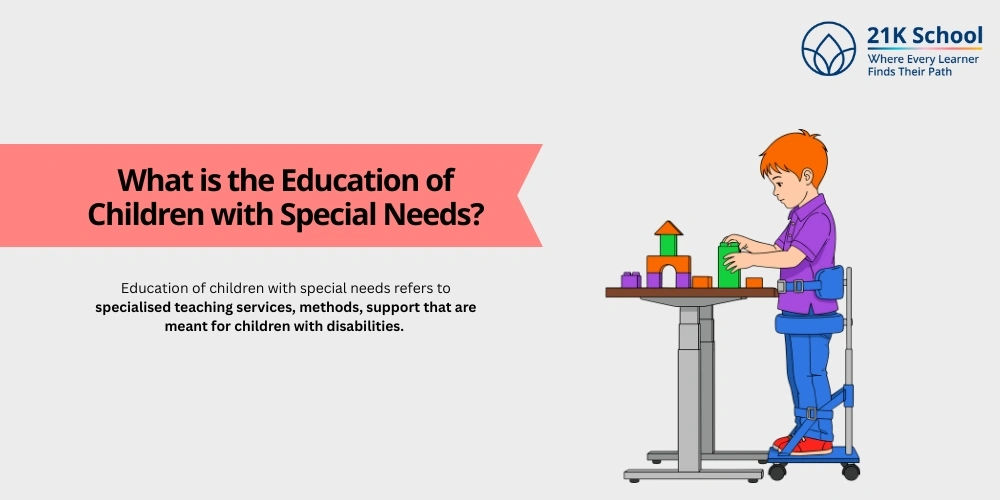
Education of children with special needs refers to specialised teaching services, methods, support that are meant for children with disabilities.
Children with special needs include children having these disabilities-
- learning disabilities
- physical disabilities
- intellectual disabilities
- autism spectrum disorders
- Language disorders
- Emotional disabilities
- Behavioural disabilities and others.
Education of children with special needs provides education to students who are facing disabilities and gives them access to requirements.
It ensures that such students can equally learn and attain education regardless of their disabilities. It also provides them safe learning environments with required accessible resources.
Also read- Virtual learning environment.
Key Aspects of Special Education or Education of Children with Special Needs
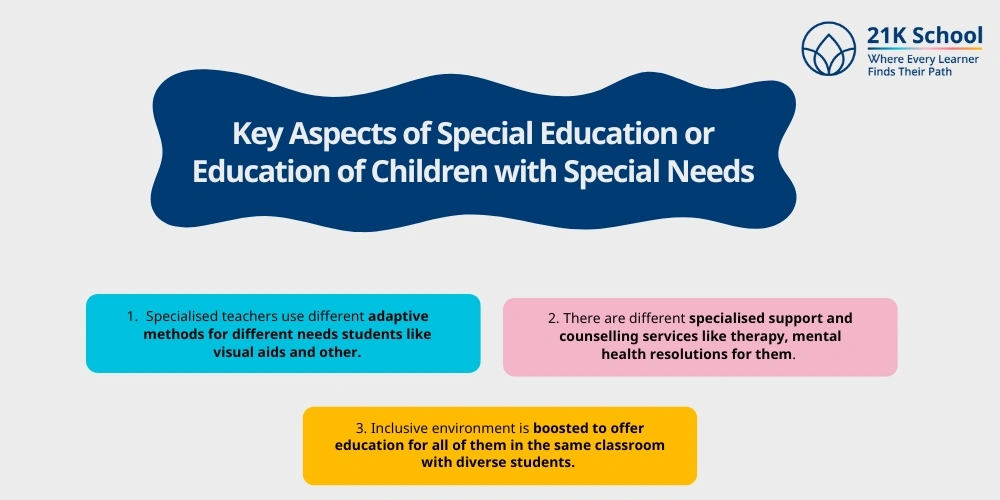
Here are certain key aspects of special education or education of children with special needs.
- Specialised teachers use different adaptive methods for different needs students like visual aids and other. Modified curriculum is kept to teach as per it.
- There are different specialised support and counselling services like therapy, mental health resolutions for them.
- Inclusive environment is boosted to offer education for all of them in the same classroom with diverse students.
Legal Framework and Policies for Education of Children with Special Needs
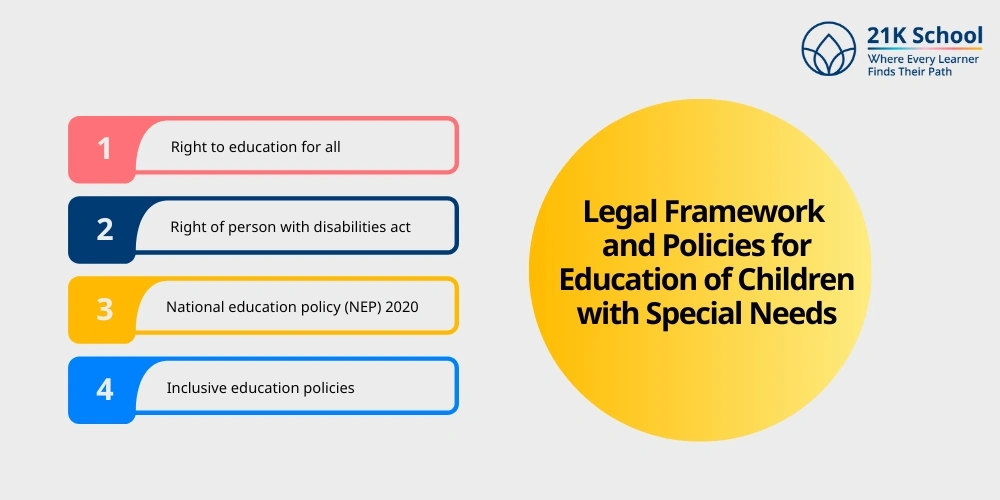
Legal framework and policies for special education or education of children with special needs are listed below. Go through each of them and know about its policies.
1. Right to education for all
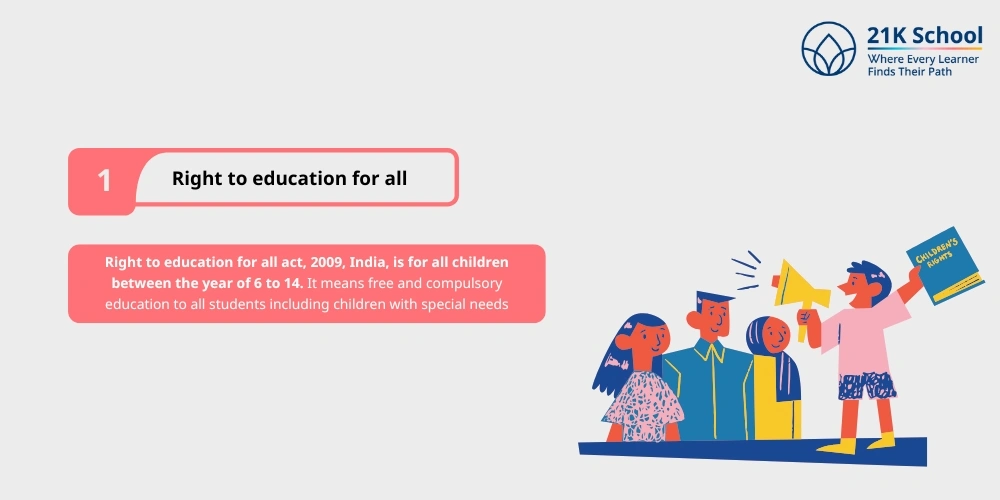
Right to education for all act, 2009, India, is for all children between the year of 6 to 14. It means free and compulsory education to all students including children with special needs. It promotes inclusive education in school.
2. Right of person with disabilities act
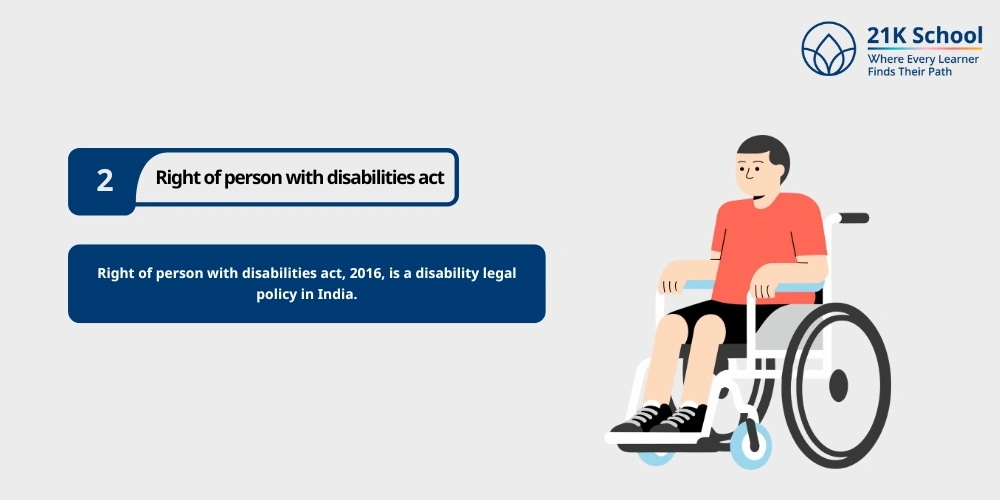
Right of person with disabilities act, 2016, is a disability legal policy in India. It refers to policy spreading equal opportunity in India, protecting rights with equal dignity.
3. National education policy (NEP) 2020
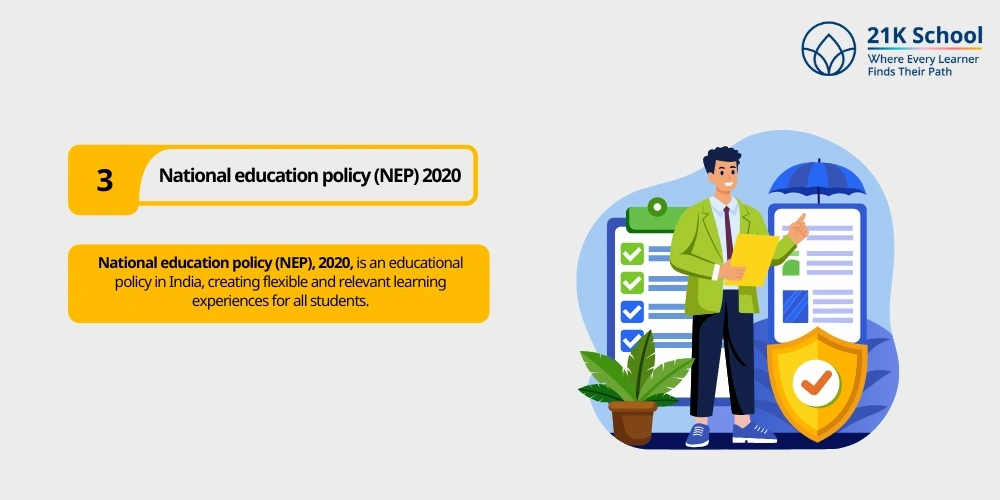
National education policy (NEP), 2020, is an educational policy in India, creating flexible and relevant learning experiences for all students. It promotes inclusive and integrated education for all.
4. Inclusive education policies
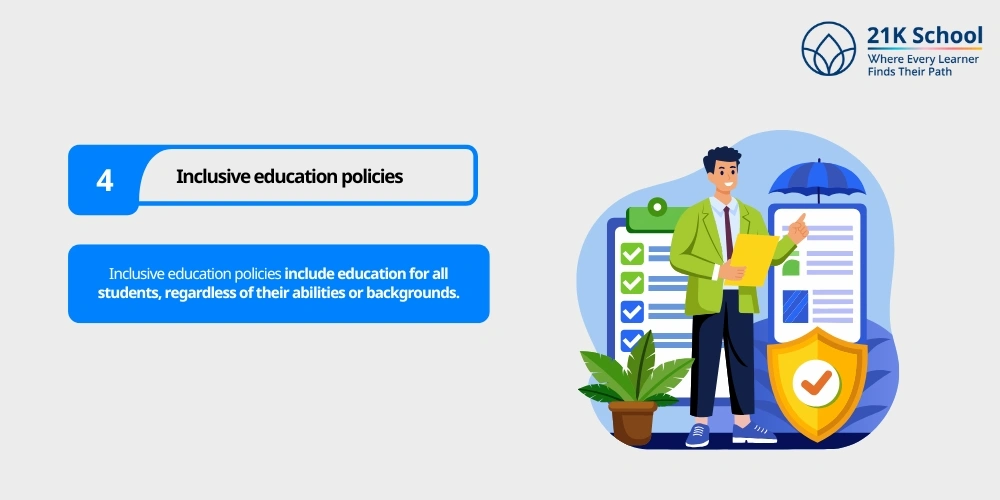
Inclusive education policies include education for all students, regardless of their abilities or backgrounds. It involves inclusive and supporting classroom environments that include diversity.
Importance of Education for Children with Special Needs
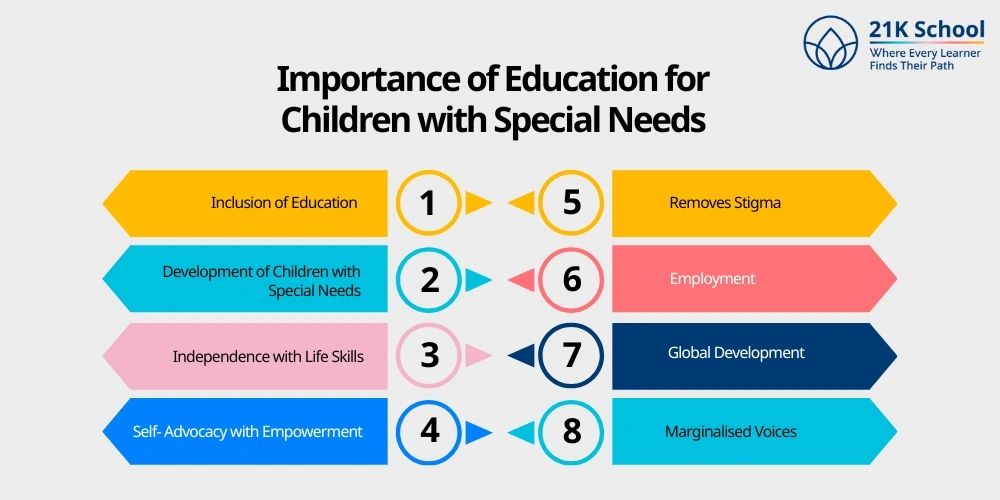
Here is the importance of education for children with special needs which breaks barriers for them.
1. Inclusion of education
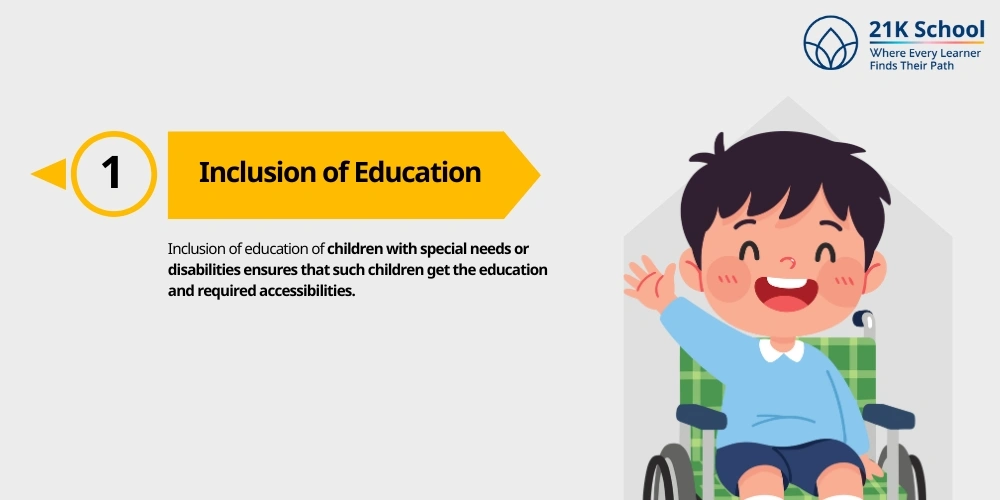
Inclusion of education of children with special needs or disabilities ensures that such children get the education and required accessibilities. It enables them to stand up for themselves and educate regardless of such disabilities.
Read– Inclusive education vs special education.
2. Development of children with special needs
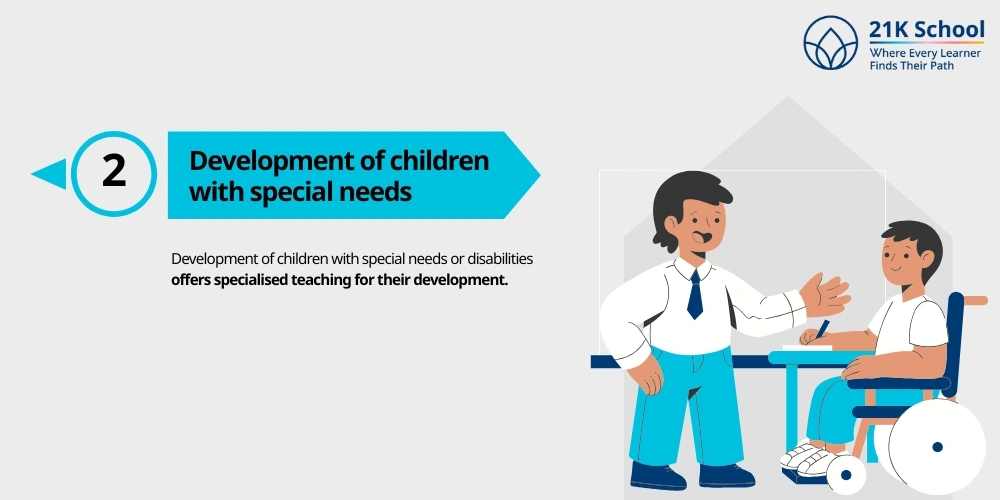
Development of children with special needs or disabilities offers specialised teaching for their development. Such development involves physical, emotional, social and cognitive development.
3. Independence with life skills
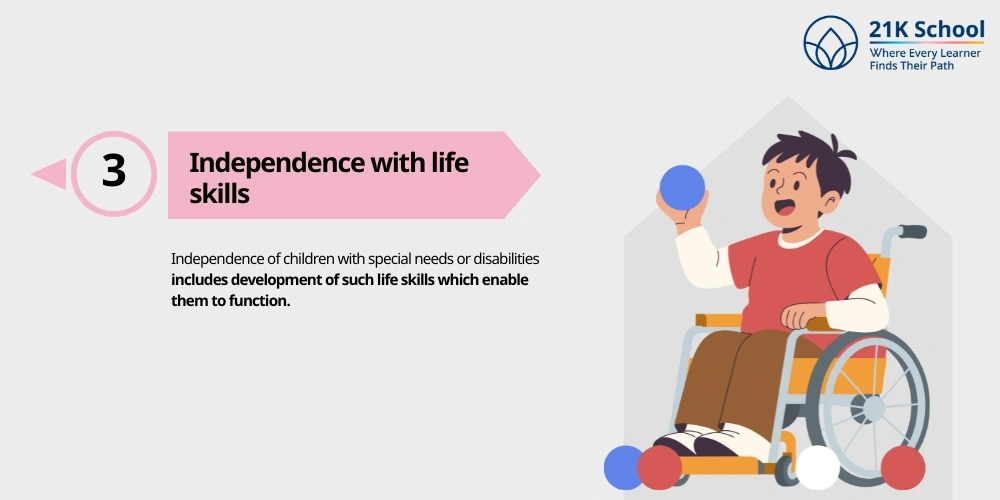
Independence of children with special needs or disabilities includes development of such life skills which enable them to function. The development of learning skills with their pace and interests make them independent.
4. Self- advocacy with empowerment
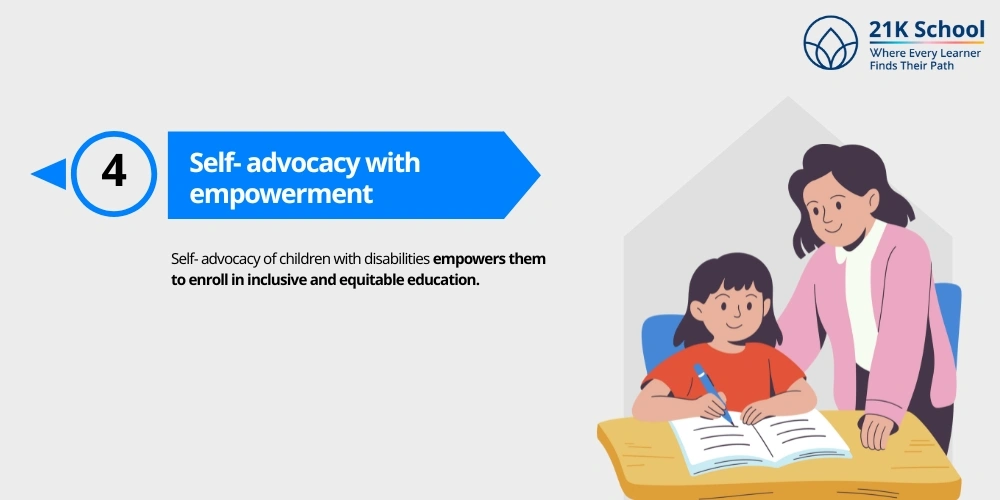
Self- advocacy of children with disabilities empowers them to enroll in inclusive and equitable education. They can face challenges that are thrown to them in life.
5. Removes stigma
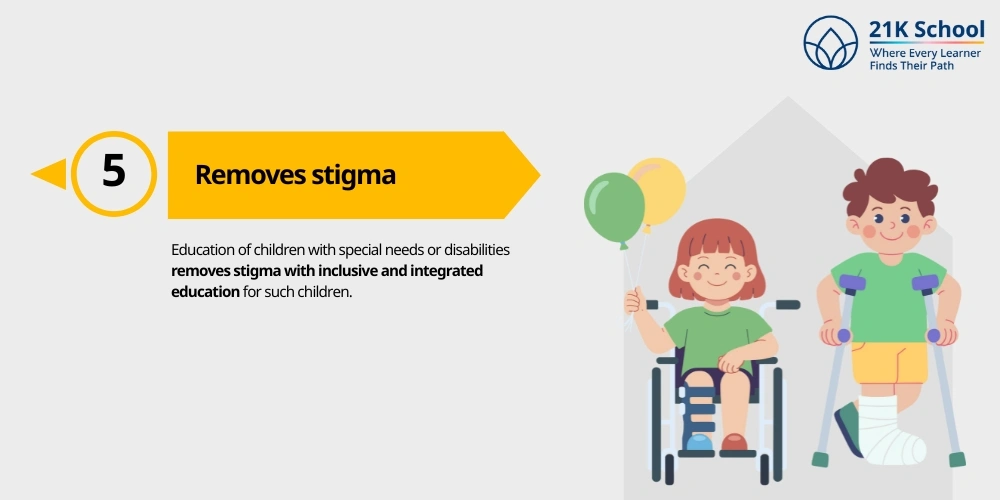
Education of children with special needs or disabilities removes stigma with inclusive and integrated education for such children. It breaks the discrimination and challenges the stereotypes associated with them.
6. Employment
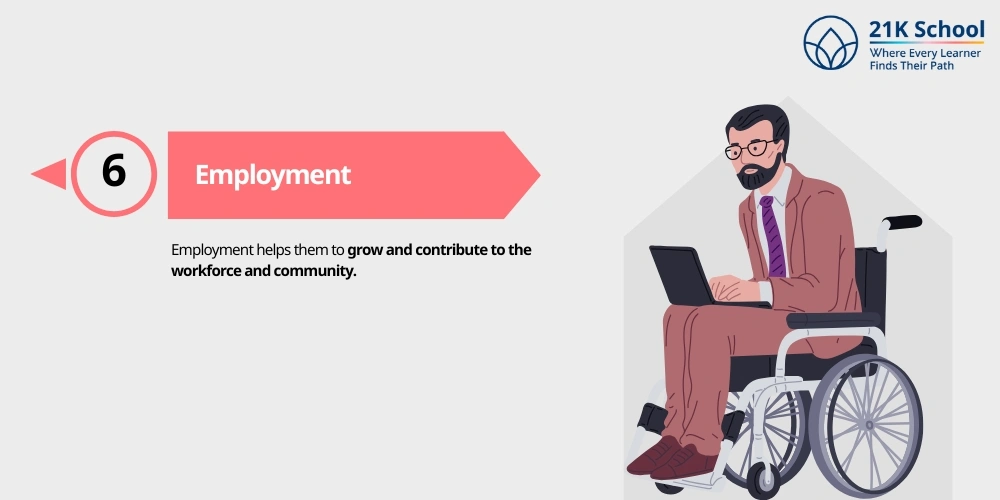
Employment helps them to grow and contribute to the workforce and community. It makes them capable with education, skills, support and employment.
7. Global development
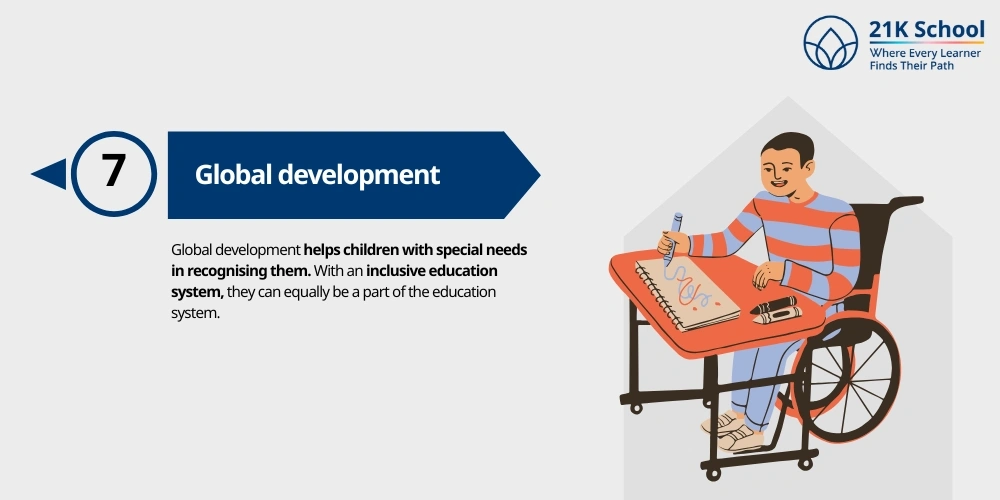
Global development helps children with special needs in recognising them. With an inclusive education system, they can equally be a part of the education system. They can contribute with their skills, work and education.
Explore online learning for special needs students.
8. Marginalised voices
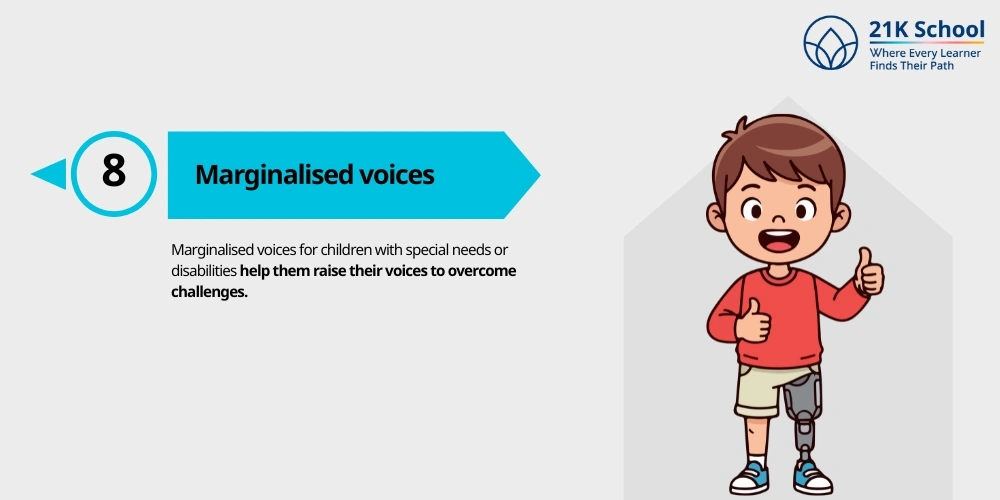
Marginalised voices for children with special needs or disabilities help them raise their voices to overcome challenges. This helps them to be a part of inclusive education.
Learn about project based learning for students with special needs.
Challenges in Education of Children with Special Needs
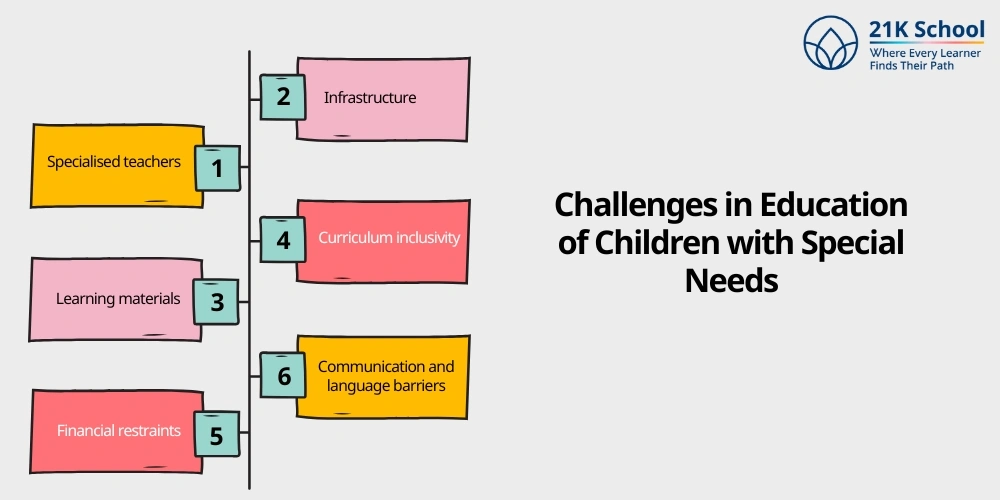
Here are challenges for education of children with special needs which puts across their problems for advocacy.
1. Specialised teachers
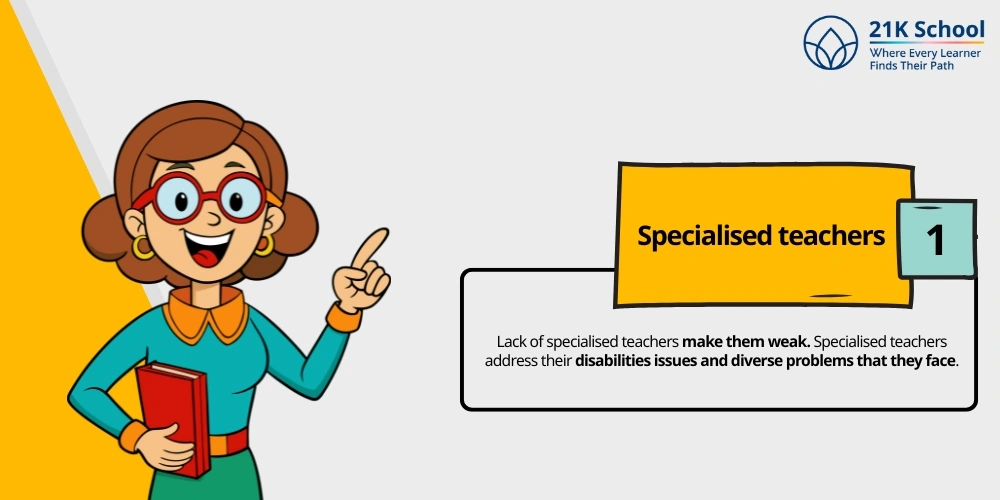
Lack of specialised teachers make them weak. Specialised teachers address their disabilities issues and diverse problems that they face.
2. Infrastructure
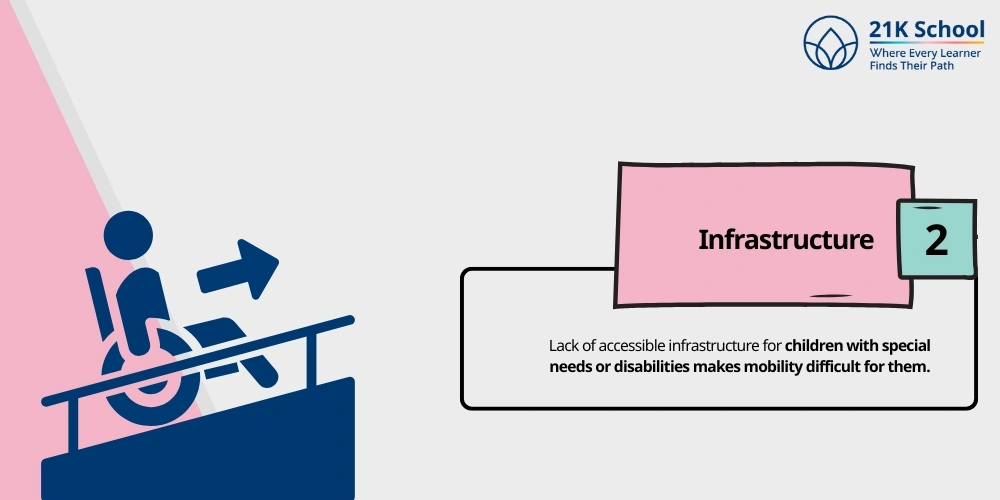
Lack of accessible infrastructure for children with special needs or disabilities makes mobility difficult for them. Inaccessible staircase and ramps for children facing physical disabilities shows impairments.
3. Learning materials
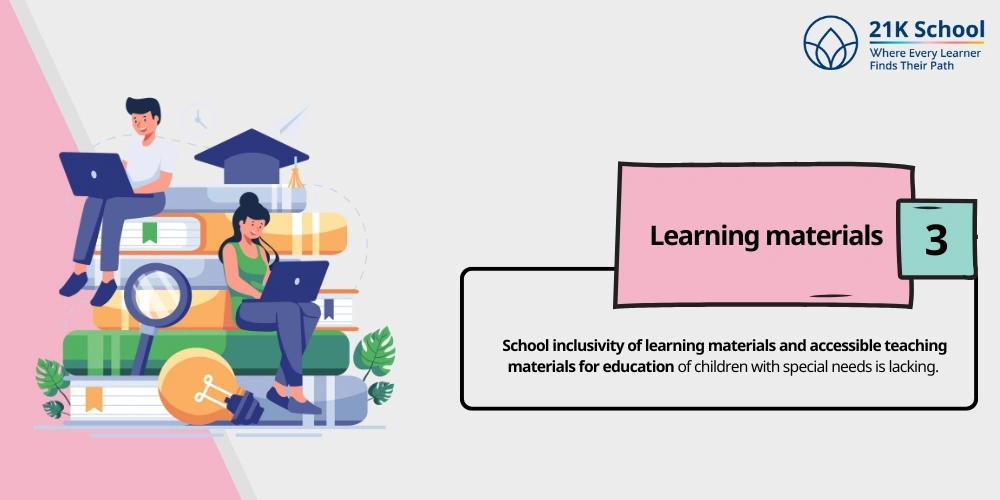
School inclusivity of learning materials and accessible teaching materials for education of children with special needs is lacking. Limited access and availability of learning materials for children with special needs makes it difficult for them.
4. Curriculum inclusivity
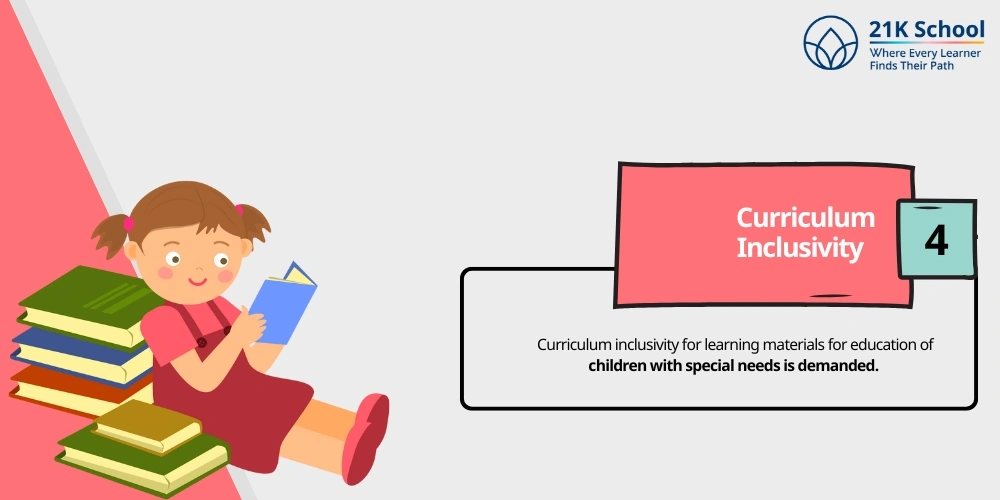
Curriculum inclusivity for learning materials for education of children with special needs is demanded. The removal of rigidity of curriculum shall be addressed. Adaptability of diverse learning styles is asked for in the education of children with special needs.
Explore importance of special education.
5. Financial restraints
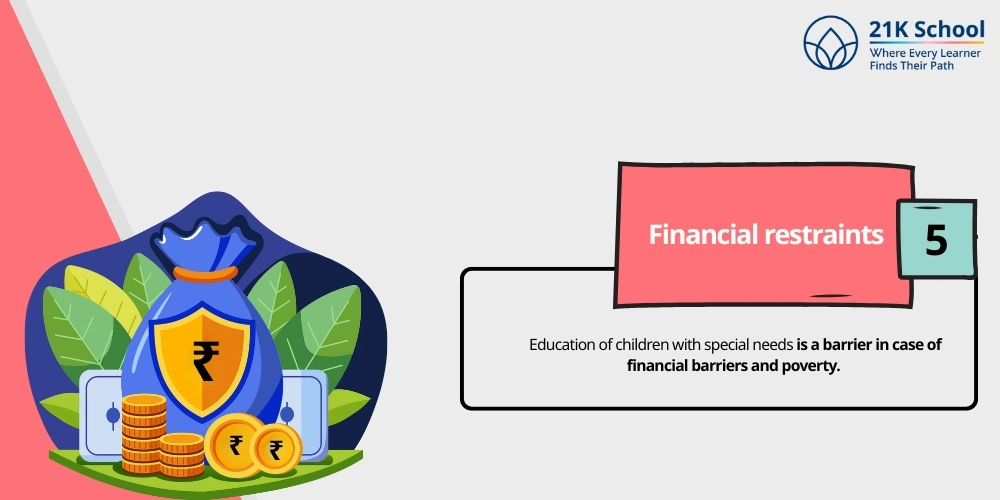
Education of children with special needs is a barrier in case of financial barriers and poverty. Circumstances become vulnerable when education of children with special needs is restrained by poverty.
6. Communication and language barriers
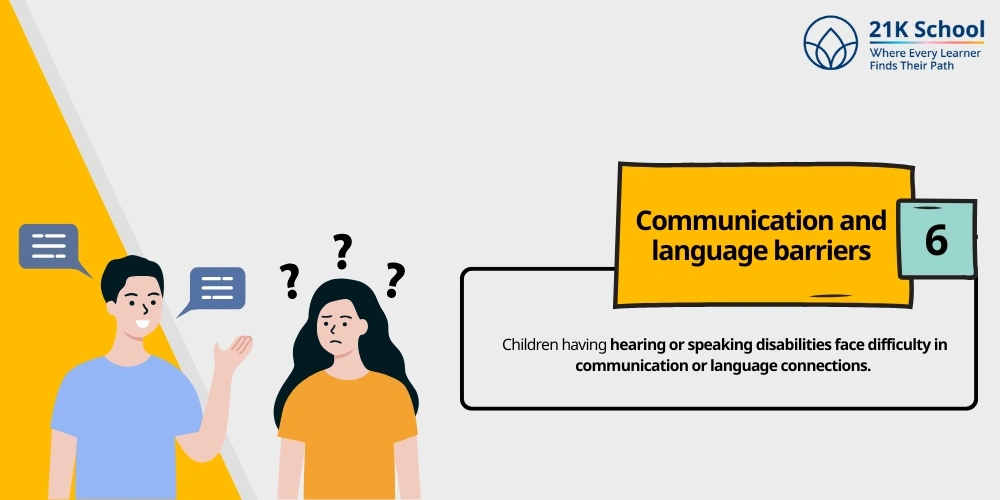
Children having hearing or speaking disabilities face difficulty in communication or language connections. Overcoming barriers is important for different settings, social skills and interactions. It also maintains relationships with people through effective communication.
Conclusion
Education of children with special needs requires an inclusive education system. Regardless of physical, intellectual, social and emotional disabilities, children shall be educated.
Education of children with special needs plays a crucial role. It helps them to develop, not only academically but in their personal life as well. Apart from their physical needs and infracture availing, their problems need to be addressed.
Such challenges and limitations have been removed and eradicated up to some extent. Addressing such challenges or limitations demands collaborative support. It hinders and comes as a barrier in education of children with special needs.
Adaptable teaching methods such as, understanding them, positive reinforcements, support, making them empowered. Collaborative approach with special education, social interactions, therapists or counsellors can be asked for them.
Each disability can be tailored with required strategies, training and techniques. Flexibility, consistency and patience shall be continued with methods and approaches to special education.


